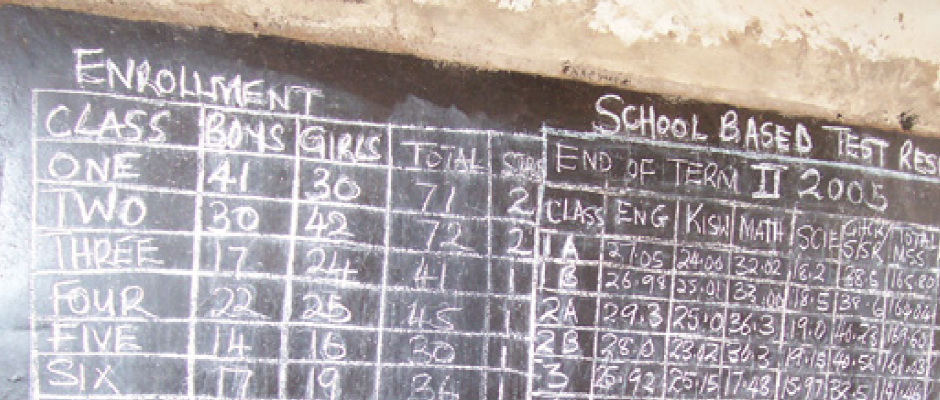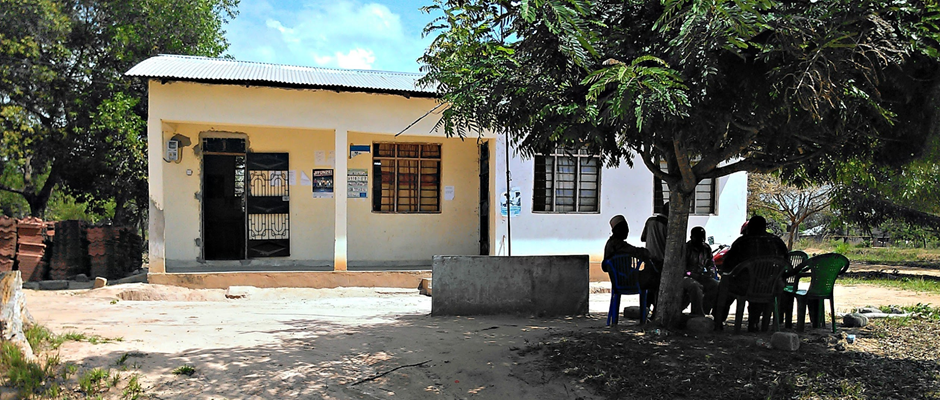
Much has been made in recent years about the potential for ‘big data’ to guide improvements in the effectiveness of development interventions. While it is no doubt true that ‘more is better’ in terms of data-driven policy analysis, the collection, analysis and application of data to inform policy decisions does not come free of costs. This is especially true in developing countries. As such, some observers have argued that ‘little data’ should not be overlooked in guiding the design of interventions that are designed to achieve better development results, such as higher literacy rates or better health outcome.
Indeed, current approaches and systems for managing data in the public sector of most developing countries leave much to be desired. Data are often extremely slow to be gathered and are incomplete. As previously mentioned, central-level policy makers may not know the exact number of schools or clinics they have because no usable master list of service units exists, or the list is not accurate. For example, schools and clinics may have duplicate names or may not have a unique identifier that is used by all who gather data on that service unit. Many countries do not disaggregate data on outcomes at the local (i.e., local government or school) level (e.g., children’s learning outcomes), and the data are not well curated (i.e., cleaned, sorted, and selected).
Typically, these “traditional” data systems were created mostly for hierarchical administrative reporting and, perhaps, top-down planning, whereas the current demands of localized development require more than that.
In a recent RTI Policy Brief, Luis Crouch argues that while big data offers potential benefits in many realms, applying it to social and economic development problems, as the underpinning of a data revolution for development, could be misleading. Instead of (or rather, in addition to) pursued ‘big data solutions’, a practical approach to a data revolution for development would consist of the following four key actions:
- Improve “little data” and the systems that already house it, and add citizen input and citizen feedback data by using appropriate media.
- Better integrate, curate, and classify existing data (including “little data”) and new data sources.
- Add value to data: Analyze it to identify over- and underperforming service units, encourage citizen interaction with services, and promote both accountability and support.
- Demonstrate management uses for data by sharing it with local actors and showing practical examples of how data can be used to improve service delivery
In a true open local government approach, authoritative, disaggregated local data on service delivery administration, finances and results should be publicly available (online) from the facility-level (school, clinic) up, so that local decision-makers can see the “last mile” of service delivery and so that communities are able to hold their public officials accountable. In fact, disaggregated local data availability is a requirement for an ‘accountability sandwich’ to be formed, which is support from the top by an effective central state and from the bottom-up by civic action (Mansuri and Rao, 2013).
However, making locally disaggregated data publicly available is not just a technical challenge: it is also a significant political economy challenge. At the national level, one can imagine that central ministries would be keen to avoid parliamentary inquiries by Members of Parliament whose constituencies are among the worst-off in terms of public services and development results. Similarly, the Members of Parliament themselves might be keen to avoid the public pressure from constituents demanding better political representation of their interests.
Equally, at the local level, headmasters, clinic heads and public works managers may face incentives not to provide accurate data about their actual performance, even if the performance failures are due to reasons beyond their control. In turn, their supervisors (e.g., local department heads) face a similar incentive to overstate overall performance and/or high intra-jurisdictional inequities within local averages. As such, without appropriate validation and public disclosure of the disaggregated data at the local level, inaccurate data will be fed up the food chain.
Open local government or open local data will be a critical ingredient in using “local yardstick development” to achieve more inclusive, equitable and sustainable development. However, technical solutions will ultimately be unsuccessful unless government officials and development actors from across different stovepipes (including sector specialists and data wonks, but also local government experts) work together to resolve not only the technical but also the political economy obstacles along the vertical governance system to create a more open, accountable and data-driven public sector.
Read the full Policy Brief:
Luis Crouch. 2015. A Relevant Data Revolution for Development. RTI Policy Brief: June 2015.



